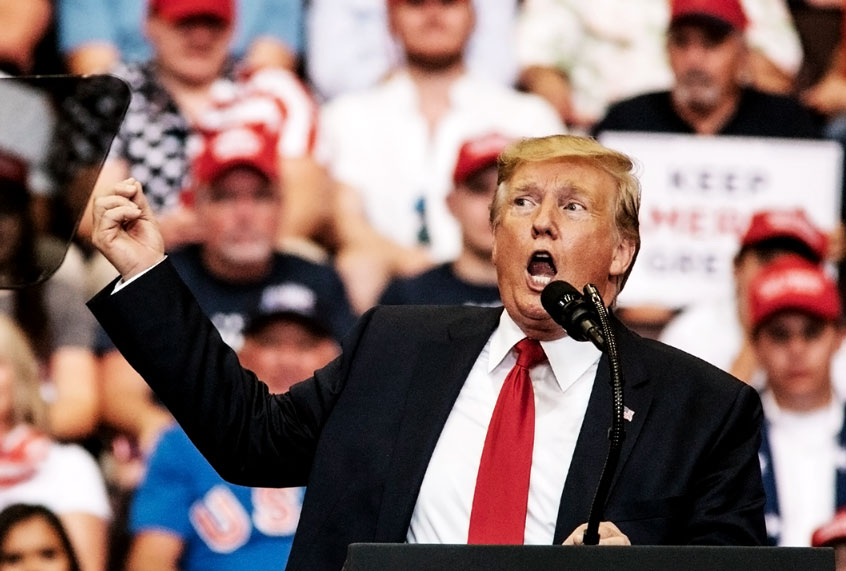On Saturday a federal judge in the Oregon city of Portland issued a preliminary injunction against President Donald Trump’s policy of deny visas to immigrants unless they can prove they either have health insurance or can afford to pay for their own medical care.
U.S. District Judge Michael Simon granted a temporary restraining order that will keep Trump’s rule from being implemented on Sunday, according to the Associated Press. While he did not say when he would issue a final ruling on whether Trump’s policy is legal, his legal order made it clear that he was concerned about the human toll of putting Trump’s rule into effect.
In his legal order, Judge Simon wrote that “facing a likely risk of being separated from their family members and a delay in obtaining a visa to which family members would otherwise be entitled is irreparable harm,” according to the BBC. As a result, instead of allowing it to be implemented on Sunday, Simon is requiring that the policy stand up to further judicial scrutiny before being potentially executed.
The Trump administration has justified its policy by arguing that legal immigrants are roughly three times as likely to be uninsured as American citizens, and that US taxpayers should not have to cover their medical costs. Experts on American health care policy have countered that assertion by pointing out that immigrants are less likely to use America’s health care system than American citizens. They have also cited a George Washington University study which learned that recent immigrants without insurance made up less than 0.1 percent of American medical fees in 2017.
The Migration Policy Institute, a nonpartisan immigration think tank, found that in 2017 57% of American immigrants had private health insurance, as did 69% of citizens who had been born in the United States. The study also found that only 30 percent of American immigrants had public health insurance, as opposed to 36 percent of citizens who had been born in the United States.
Esther Sung, a senior litigator at the Justice Action Center and one of the attorneys who represented the plaintiffs at Saturday’s hearing, told reporters after the ruling that “we’re very grateful that the court recognized the need to block the health care ban immediately. The ban would separate families and cut two-thirds of green-card-based immigration starting tonight, were the ban not stopped.”
Trump’s presidency has deviated from those of both Republican and Democratic presidents since the 1930s by focusing on immigration restriction as a core policy tenet. Speaking with Salon in June, Fox News’ Steve Hilton argued that the president is not a restrictionist despite seeming so in his policies.
“He’s not a restrictionist. He’s not. He talks about it the whole time as a badge of pride,” Hilton told Salon. “Because our economy is now doing really well, we need more people. They’ve just got to be skilled people. So it’s all about America being No. 1, booming — more people, more investments. To me that is the core Trump thing, ‘America First,’ delivered through economic means.”

